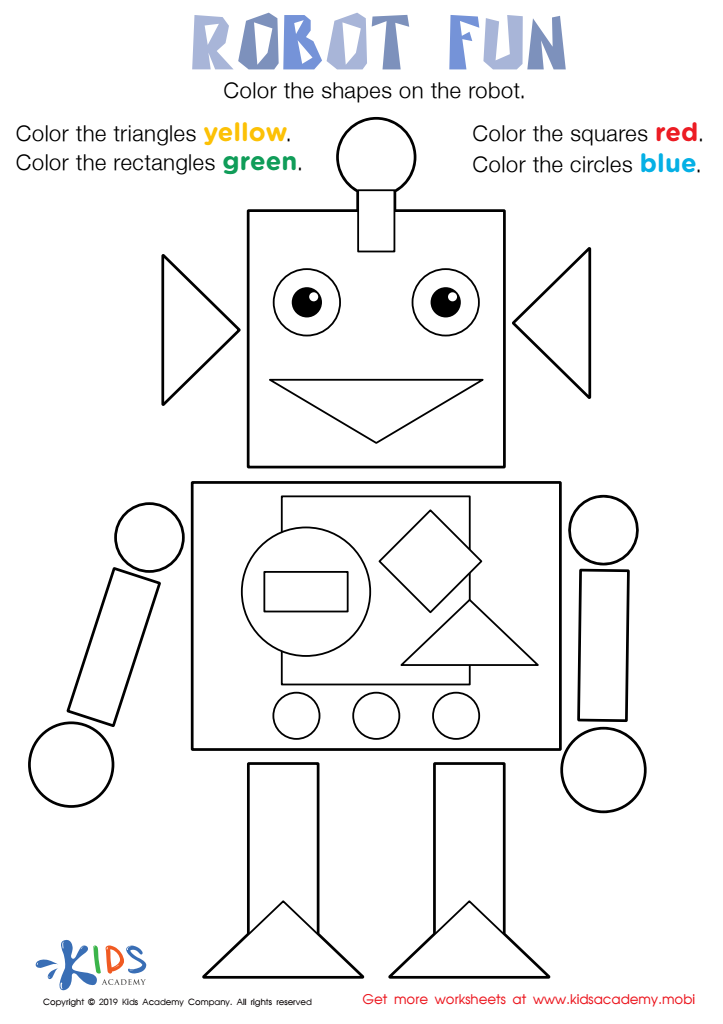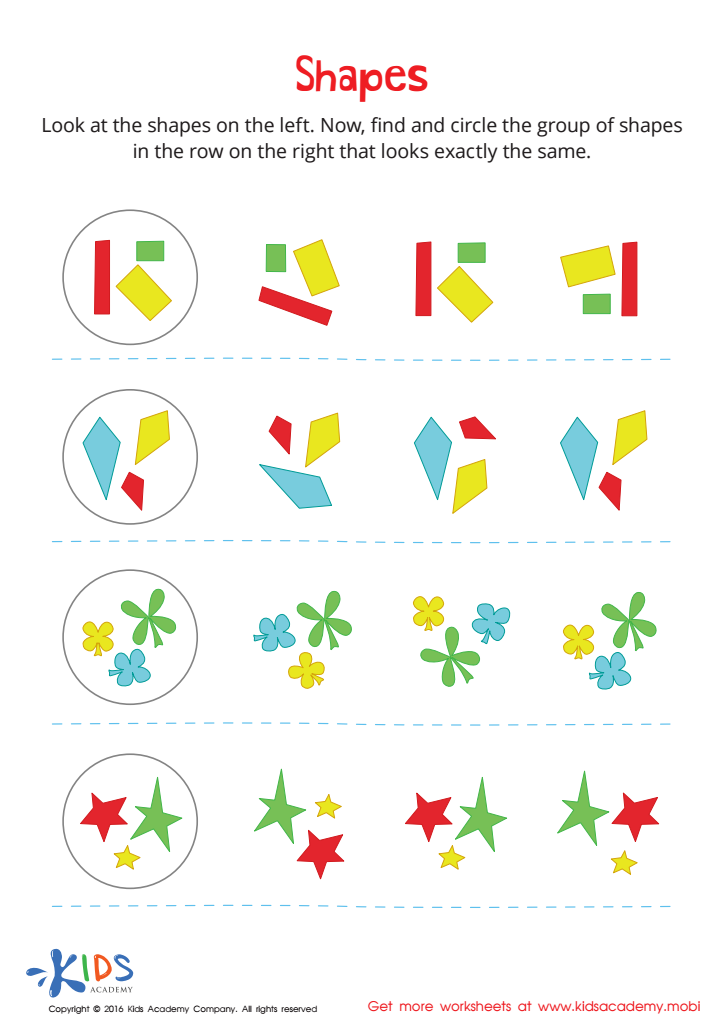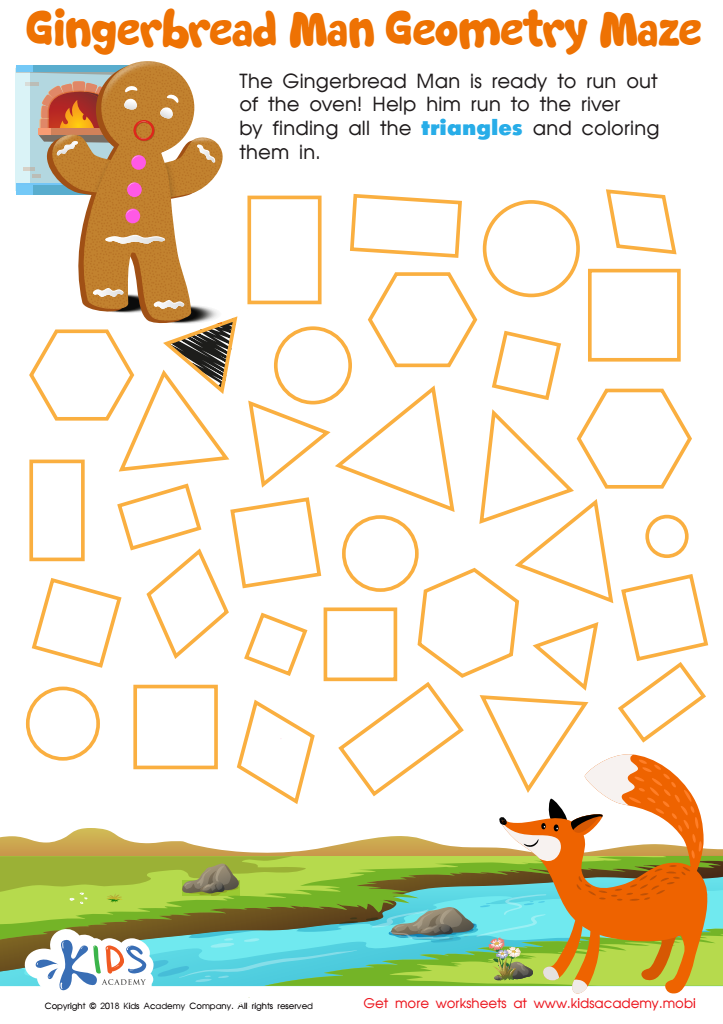Color recognition Geometry Worksheets for Ages 4-5
3 filtered results
-
From - To
Introduce your little ones to the vibrant world of colors and shapes with our "Color Recognition Geometry Worksheets for Ages 4-5." Designed to make learning fun and engaging, these printable worksheets help children identify and match colors while exploring fundamental geometric shapes. Perfect for pre-K and kindergarten students, each activity boosts critical thinking and fine motor skills. With colorful illustrations and creative tasks, our worksheets are an excellent resource for both parents and educators looking to enhance early math proficiency. Make learning a delightful adventure and watch young minds flourish with excitement and curiosity!


Robot Fun Worksheet


Shapes Worksheet


Gingerbread Man Geometry Maze Worksheet
Color recognition and an understanding of basic geometry play a crucial role in the early developmental stages for children aged 4-5. Firstly, learning colors enhances cognitive development. Recognizing and naming colors is among the earliest cognitive tasks that lay the foundation for future learning concepts, such as math and language skills. Colors also stimulate brain development by helping children organize information and relate it to other known variables.
In terms of geometry, familiarity with basic shapes like circles, squares, and triangles builds spatial awareness. Geometry helps children understand the world around them, fostering skills in reasoning, problem-solving, and critical thinking. For instance, intersecting and aligning shapes fosters analytical abilities, which serve as precursors to more advanced mathematical skills, such as understanding patterns and relationships between objects.
Furthermore, combining color recognition with geometry during playful and structured educational activities makes learning engaging and enjoyable. This can significantly boost a child's confidence and interest in academics, creating a positive association with learning. Socially, activities involving colors and shapes promote collaborative learning among peers, fostering interpersonal skills.
Overall, prioritizing color recognition and geometry at an early age equips children with multiple foundational competencies essential for future academic success and day-to-day problem-solving abilities.
 Assign to My Students
Assign to My Students





























